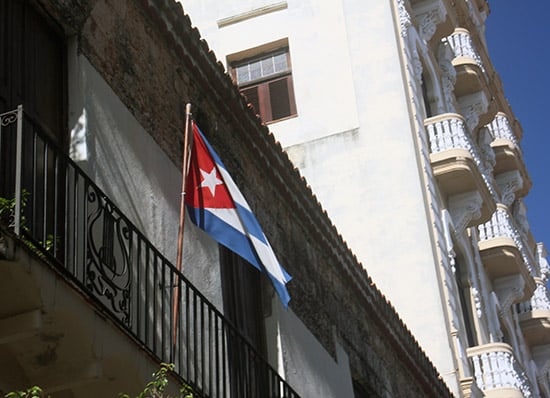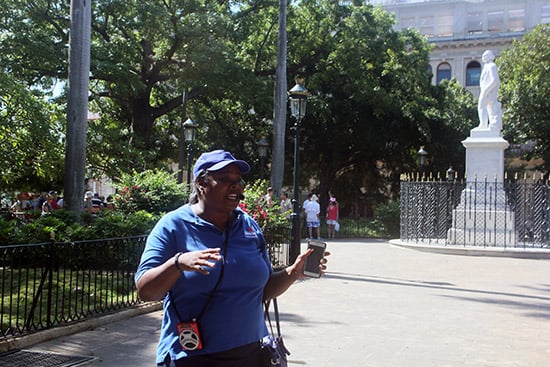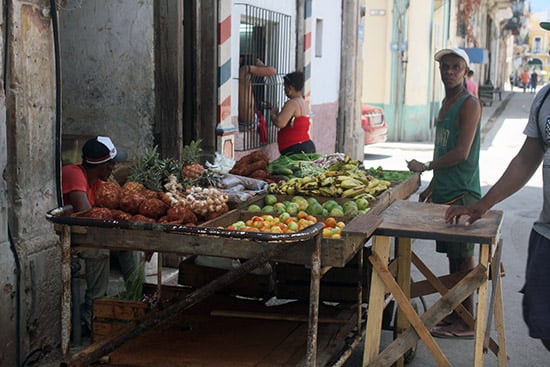Yesterday we discussed information that was revealed around how changes to the United States' Cuba policies may affect travelers and today things are becoming a bit more clear. Up to now, Americans traveling to Cuba were able to easily fall under the "educational" or "support of the Cuban people" categories on the general OFAC (Office of Foreign Assets Control) license permitting their visits. Now however it appears that individual trips will be prohibited, but it isn't clear how. Cruises and commercial flights, which resumed last Summer for the first time in 50 years, will continue to operate, and travelers will still "self-certify" with an affidavit like this one, but they may see enhanced enforcement when returning to the US. Royal Caribbean has already stated that their cruises will not be impacted by the changes.

It has been required under current policy that visitors keep a log of their time and are prohibited from any "touristic" activities, though it doesn't seem there was a mechanism or precedent for enforcement. “Our policy begins with strictly enforcing U.S. law,” the US President said. “We will enforce the ban on tourism.” It remains unclear how the logistics of travel will work as there will be additional prohibition of financial transactions with any entity tied to the Cuban military. Cuba is however a communist nation, so almost all businesses roll up to Grupo de Administracion Empresarial S.A., or GAESA, the arm of the military which controls the majority of the Cuban economy. Statements today did however note that the new rules will still allow "business to business" engagement. This indicates financial transactions won't be completely banned, but with any enforcement of group travel there will be a great reduction in persons staying in AirBnBs and private homes - transactions from which Cuban citizens directly benefit.

Within the US government even conservative leaders have warmed up to a more open relationship with Cuba and free travel to Cuba for US citizens, so it is unclear how new policy will actual come about. In fact, as recently as last month legislation was introduced to allow Americans to travel to Cuba as tourists. As it stands now, the Treasury Department has 90 days to draft new rules that fulfill today's directives from the White House.
With regard to other Cuba policy changes, it was announced that the US embassy will remain in Cuba, the Cuban embassy in the US, and the country will stay off the US list of state sponsors of terror. Additionally visitors can continue to bring back Cuban rum and cigars. Further, "family travel", Cuban-Americans visiting family in Cuba will continue unrestricted and their remittance restrictions remain unchanged.

Billy's Take
We recently sailed to Cuba, which you can read more about in our Cruising Cuba series, and we liked it so much that we booked another and it will be interesting looking out for any differences.
Once policy has actually been drafted we'll know a lot more, but two points stand out. First, assuming that cruise lines' tours will qualify under the new policies (adjusting if needed), I suspect that "self-certification" would still be one part of enforcement (though there may be other elements), as neither the Cuban government nor cruise lines would seem likely to take on the role of enforcers of US policy. I could however see where they're asked to pass a manifest of passengers who booked a specific set of tours to US officials, which would at least account for some of the time that would need to be logged. Second, better definition of log requirements would need to be made, as if US citizens are going to be asked to document their own time or risk breaking the law, there must be clarity - a concept that I'm confident American's won't be too warm on to begin with. It seems hard to imagine standing with an immigration or other official justifying how long of a bathroom break I took in Havana, or whether my purchase of a piece of art made by a local was "touristic" rather than educational or in support of the Cuban people. Ultimately we'll just have to wait and see, but I'll note just like yesterday that the prosperity and freedom of the Cuban people is far more important than any visit - the question for individuals as well as the US government to decide is whether that prosperity and freedom is more likely to come from greater interaction with a society, or attempting to isolate that society from us.
I like talking ship (as we say on Periscope) and providing cruise information and tips - not politics, but it's hard to ignore that the US policies on Cuba are inextricably linked to travel, especially cruising. As such we sincerely appreciate civil discourse on the matter.

